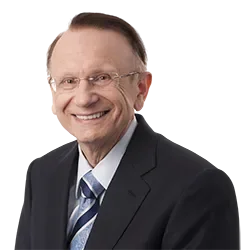Live Event
The Future of the Workforce: How the Robotics Revolution will Shape the Employment and Labor Law Landscape
Wednesday, February 12
- 8:00 AM PST
This program will explore the robotics industry, where it is headed, and how its advancement affects workplace policy.
Modern robotics and Artificial Intelligence (AI) systems are developing in a variety of industries, including food service, medicine, agriculture, airline, energy, and ground transportation, among others. While many assembly line job tasks have been mechanized for years, today robots are being taught how to “think” like a human to improve performance and object recognition. It has been estimated that by 2025, half of the jobs in the United States will be performed by robots of some sort.
The emerging robotics revolution is spurred by the rise of cloud computing, improvement of sensor technology and data analytics, and the prevalence of smartphones and mobile apps. Combine these advances with the increase in labor costs and relative decrease in technology costs, and you have the recipe for a robotics revolution.
What does the rise of robotics mean for the workforce? For the nation’s skills gap? For labor and employment law? The legal pitfalls stemming from privacy, wage and hour, safety, discrimination, international, trade secrets, eDiscovery, tax, tort and labor laws – to name a just few – are economically treacherous and difficult to navigate. At the same time, new technologies have the potential to dramatically decrease an employer’s liability risks.
Come to Littler's “The Future of the Workforce” one-day conference and learn from Littler, industry and policy experts how companies are developing robotics and AI technologies, and how the numerous state, federal, and international labor and employment laws, regulations, and directives will affect employers and employees amid the rise of robotics.
Breakfast & Registration: 9:30 am - 10:00 am
Conference: 10:00 am - 3:30 pm
Location:
Renaissance Washington D.C.
999 9th Street N.W.
Washington, D.C.
Questions? Email Michael Layman or call (202) 772-2522.
